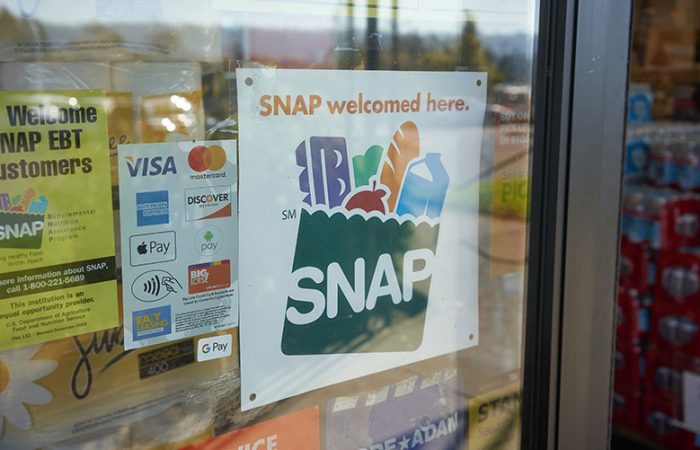Rent can be exhausting for a lot of people to manage. According to Statista, the approximate rent per month for an apartment unit in the United States in February 2022 was $1,129. Some people cannot afford to pay that kind of money on rent, especially if they want their housing costs to be affordable. As an example, someone who works 40 hours per week at $12 per hour can only earn $1,920 a month before taxes.
According to the definition from the United States Department of Housing and Urban Development (HUD), affordable housing costs should be less than or equal to 30% of a family’s gross monthly income. This means that they should not spend more than $576 per month on housing costs, in the case that they earn a monthly income of $1,920. If you find yourself in a tight situation and need help to get out, then you should consider reviewing the Section 8 Housing Assistance Program.
Section 8 Program: What It Is
The official name of this assistance option is the Housing Choice Voucher program. It also has another name: the Section 8 program. Both names refer to the same federal housing program that has been assisting low-income individuals with rentals since 1974. HUD is responsible for funding this program, but local public housing agencies (PHAs) are responsible for administering the program.
As the name mentions, the HCV program offers low-income families and individuals housing vouchers. The landlord receives the rent from the vouchers, which the local PHA pays on the recipient’s behalf. The housing units that recipients choose should meet certain housing quality standards (HQS). HQS guidelines currently have 13 major requirements of housing quality, performance standards, and acceptability requirements for meeting each performance standard.
How Beneficial is the Housing Choice Voucher Program?
Research shows that housing vouchers decrease homelessness and assists people who are dealing with other struggles. Housing vouchers help households spend more of their restricted resources on other basic needs through a decrease in their rental expenses. Families who pay a high percentage of their earnings on rent expenses would spend less money on groceries, clothes, healthcare, and transportation than people who pay less.
With the housing voucher, the amount of money you will pay for rent generally will not be more than 30% of your income. The law states that the unit a household selects should not have rent costs where the household pays over 40% of their adjusted monthly income on rent if the housing unit is above the payment standard.
The HCV Program Eligibility Requirements
There are four main factors that define your eligibility for relief with the Section 8 program, including:
- The Family Situation
- Total Income Limit
- Citizenship Status
- Eviction History
You must meet all of the eligibility requirements for the program to accept your application. For each requirement, you may find some exceptions. You need to make sure that your current situation meets the basic requirements as much as possible. It is important for you to know that eligibility requirements will differ based on the area.
Additionally, you should remember that once you apply, the program will probably put you on a waitlist if you are approved. A waitlist is required because a lot of households are applying, yet there is only a restricted amount of support available for this program. Hang in there–you will receive your housing voucher eventually if the program approves your application.
The Family Situation
To be eligible for Section 8 assistance, your family status should meet certain requirements. Although the HUD has a specific definition of a household, they allow the local PHA to set their definition of a family too! Use the following criteria as a general outline to figure out if your household is eligible for the program:
- You have at least one person over 62 years old.
- Your family has or does not have kids.
- There is at least one individual with a disability in the household.
- If your family has been displaced involuntarily for eligible reasons.
It is important to remember that you do not need to meet all of the requirements above! But, if you meet one requirement, then you might qualify. Changes in family size should be notified immediately as they influence the assistance amount you can get.
Total Income Limit
The income limit requirement is another factor that determines Section 8 eligibility. Since the HCV program focuses on helping low-income individuals, applicants’ yearly income must not exceed a specific limit. Eligible households generally need to make less than 50% of the local area’s median income (AMI). It varies from one area to another. Contact your local PHA to figure out the requirements in your locality before you apply. Some types of income you should present on the Section 8 application include:
- Disability income
- Employment income
- Social Security payments
- Overtime earnings
- Bonuses and/or tips
- Unemployment payments
- Death benefits
- Insurance payments
- Alimony
- Military pay
- Child support
Additionally, your local public housing authority might need your most recent bank statements. The specific documents that you need to present can differ too.
Who receives it first?
According to the law, at least 75% of recipients of the HCV Program should have an income that is less than or at 30% of the local AMI. The HUD outlines the specific income restrictions, but this could differ based on the area. Additionally, local PHAs can have local preferences when choosing applicants on the waiting list. The specific preferences will differ, but some preferences could include:
- Individuals that are homeless
- People that are going through substandard living conditions
- Families that pay more than 50% of their income towards rent expenses
- Families that have been displaced involuntarily
Citizenship Status
Only American citizens and eligible non-citizens can gain from this program. When going through the application process, applicants and the members of their household will need to sign a certification form. These forms will declare the citizenship status of a person. Your local PHA might need more documentation from you. This can include:
- Resident alien cards
- Passports from the U.S.
- Registration cards
- Social Security cards
You should keep in mind that if your household has individuals that have an eligible citizenship status and do not have an eligible citizenship status, you still might have the chance to get Section 8 benefits. The benefits will only be based on the number of eligible members.
Eviction History
The eviction history of an individual notifies the local PHA about the type of tenant the recipient used to be. Someone could have been unreliable or careless with earlier rentals. This is why generally families will need to have a positive rental history to be eligible. Applicants may automatically disqualify if they were evicted from a property for a drug-related activity or other criminal activity. Another way that an applicant might not qualify is if they were convicted of methamphetamine production in government housing.
The Bottom Line
In conclusion, the Section 8 Assistance program can be the perfect solution to your current situation of not having affordable rent. It is a possibility that you will have to wait a while before getting any financial support on your housing costs, but you can save a large amount of money on your housing costs with this support option if you are eligible.
The Section 8 program offers recipients the option to look for an eligible unit of their choice and pays a part of your rent with housing choice vouchers for you to the landlord. Requirements that determine whether you qualify or not will differ based on the area you live in. Four main eligibility requirements that will be important are family status, income level, citizenship status, and eviction history. If you are interested in starting the process or have any questions about this housing option, then you should contact your local PHA.



